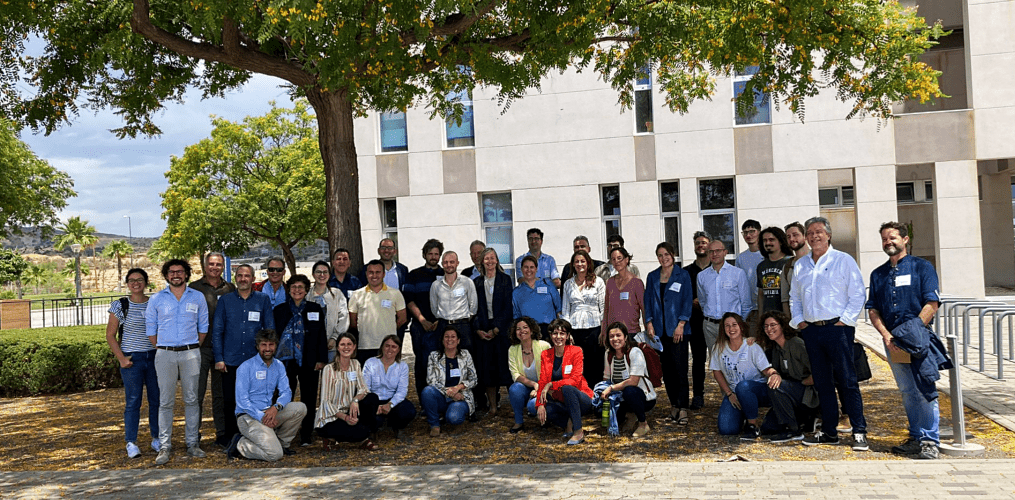
The Environmental and Biodiversity Climate Change Lab (EnBiC2-Lab) organised a workshop at the University of Malaga on Friday 2 June 2023, entitled ‘A knowledge baseline on Mediterranean forests supported by innovation’, to explore how new technologies and innovative methodologies can be combined to improve sustainable forest management in the region.
LifeWatch ERIC is a key partner and that is why Christos Arvanitidis, LifeWatch CEO, spoke in his presentation about the integration of new technologies, citizen science data and national inventories to prioritize key areas for conservation and restoration. Innovative methods like Satellite Remote Sensing, Artificial Intelligence and Big Data allow for better forest cartography. LifeWatch ERIC’s advanced data collection, meta-analysis, and modelling systems have much to offer silviculture and the multifunctional management of Mediterranean forests.
EnBiC2-Lab is an ERDF project that provides services for the environment and biodiversity by bringing together databases on water, soil, air, fauna and flora. The workshop was organised by the European Environment Agency (EEA) and the European Topic Centre on Spatial Analysis and Synthesis of the University of Malaga (ETC-UMA), whose Director, Dania Abdul Malak, spoke about the importance of forests in reducing climate related risks.
The Mediterranean region is home to 75 million hectares of forest and woodlands renowned for their physical and biological heterogeneity, but the area is warming 20% faster than the global average. And despite indications of an increase in overall forested areas, 91% of Mediterranean forests are reported to be degraded and fragmented. There is an urgent need to find adequate tools and approaches to assess and manage these shared resources to ensure their long-term sustainability.